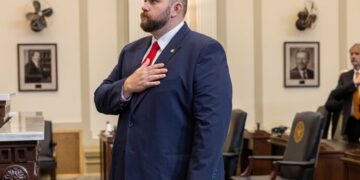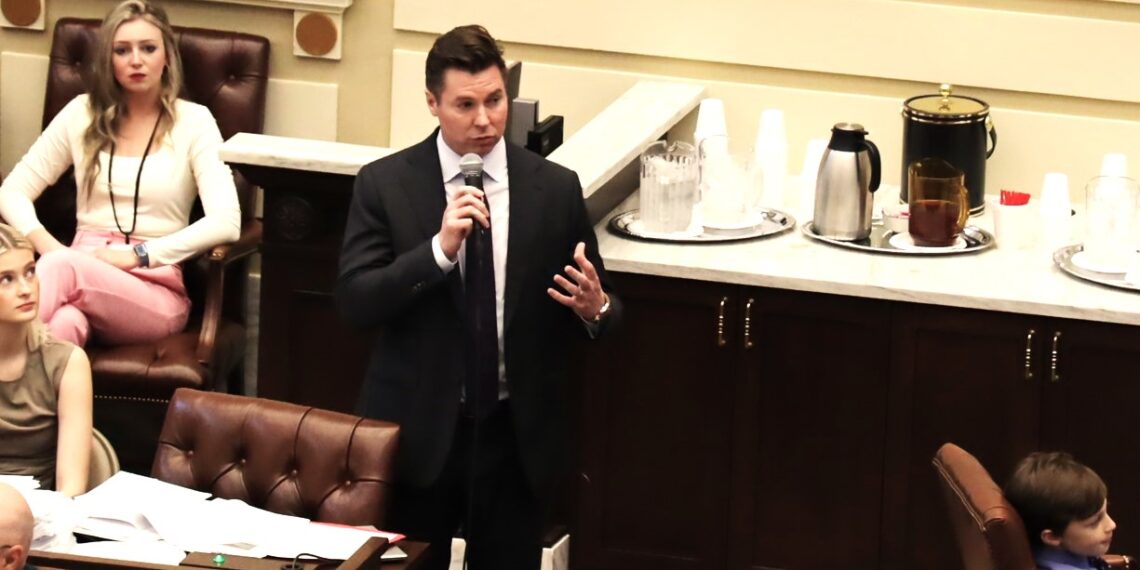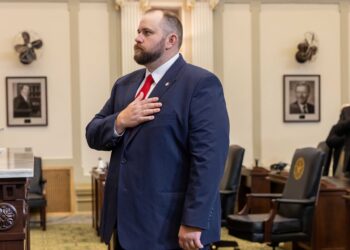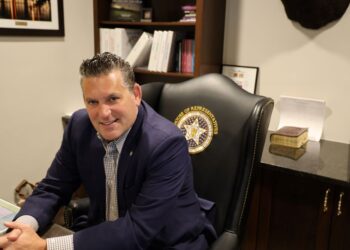OKLAHOMA CITY (OBV) – A bill that seeks to grow the state’s future workforce by offering students more career pathways through expanded graduation requirements succeeded in the Oklahoma Senate on Monday.
House Bill 3278 passed the Senate as an emergency measure with a 35-11 vote.
Rep. Rhonda Baker, R-Yukon, and Sen. Adam Pugh, R-Edmond, wrote the bill, which requires eighth through 12th grade students in Oklahoma public schools to complete modified graduation requirements starting in the 2025-26 school year.
“This [legislation] wasn’t born out of Rhonda Baker just wanting to eliminate requirements. We asked school districts if we were going to innovate and provide them maximum flexibility what would that look like by law? This [bill] was those school districts request,” Pugh said on the Senate floor. “We brought a number of education advocacy groups, into meetings. We brought businesses into meetings. We brought school board members into meetings. We brought superintendents and teachers into meetings. And we said, ‘If we give you maximum flexibility to provide a host of innovative options for your students on whatever pathway they choose, what does that look like?'”
The bill creates the Graduation Act of 2024. It recently passed the House of Representatives with a near unanimous 95-2 vote. The bill will next return to the House for acceptance of amendments which the Senate approved on Monday.
The modified requirements include four math courses, including Algebra I and either Algebra II or Geometry.
Students must also complete six Individualized Career and Academic Plan (ICAP) pathway units that can span a range of subjects and career paths selected by the district board of education. New requirements also include a postsecondary-approved full-time CareerTech program or locally approved science-based application course to satisfy the required physical science unit.
The purpose of the modifications is to provide students training and education that will prepare them to enter the workforce upon graduation and start their career with the skills they will need to succeed, according to bill’s authors.
“By creating flexibility and increasing some rigor through math, I think that ultimately our students are going to be more self-assured and better prepared for what will come their way in the future,” Baker said.
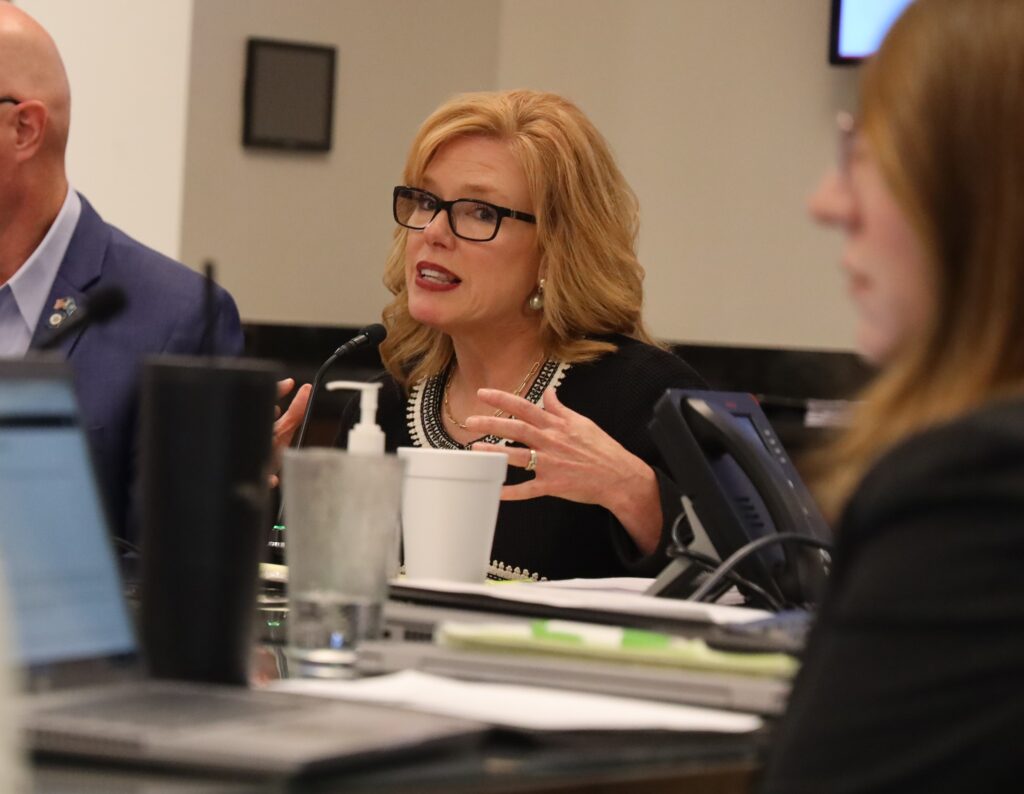
Pugh’s Senate colleagues asked him how changing graduation requirements would impact traditional school curriculum. Sen. Julia Kirt, D-Oklahoma City, expressed concern that expanding education requirements would lead to smaller schools eliminating foreign language and fine art classes.
Pugh said he does not believe that will happen.
“I think if the community wants those courses to be available in those school districts, that will be locally decided. And since this body has almost doubled funding for common education in the last seven years, then there’d be no reason to start taking away core courses,” Pugh said. “In fact, I think schools will actually innovate and offer more courses and be a little more unique to what those community needs would be.”
Sen. Mary Boren, D-Norman, also expressed concern about art courses being eliminated. She asked Pugh if the bill permits schools to eliminate art from their curriculum with no accreditation consequence.
“This has nothing to do with accreditation,” Pugh responded. “And right now, even in the current law, as is, our art wouldn’t be subject to accreditation.”
After an additional question from Boren, Pugh confirmed that foreign language courses will no longer be a graduation requirement if HB 3278 is signed into law.
Oklahoma CareerTech Director Brent Haken recently spoke with Oklahoma Business Voice about HB 3278, saying the bill will help more students discover and realize their career ambitions.
“Oklahoma CareerTech believes in the passion of students and the interest they have for their careers. What this bill does is open the eyes of those students to the opportunities that exist in our state by focusing on career pathways,” Haken said.
Baker, a former teacher, said her colleagues in the legislature recognize the need to add more career preparation to graduation requirements.
“I think everyone in their district has seen that there is definitely a need for the increase of flexibility and rigor,” she said. “The only concerns, I think, are for students that want to maybe go into something that doesn’t require as much math. There’s been questions about why should we require more math?”
House Speaker Charles McCall, R-Atoka, spoke with Oklahoma Business Voice about Baker’s dedication to building career pathways for Oklahoma students.
“First of all, I think Rhonda Baker is a great education chair for the House of Representatives. It’s probably the toughest committee chairmanship – chairwomanship, in this case – in the state because everyone is a stakeholder in education,” McCall said. “I think Rhonda has a real passion to see workforce improve in the state of Oklahoma. She has a real passion to see education outcomes improve.”
HB 3278 will help grow both educational possibilities and the state’s future workforce, McCall said.
“We’re not only working to increase a great workforce and a larger workforce, but a lot of our education policy and the things that we’ve looked at here in the last few years is expanding education opportunities for our students to give them the best environment possible for their learning styles. And because those educational outcomes are going to be so important in competing for our own economy and also competing for jobs in the future,” McCall said. “I always defer to Rhonda Baker. We would consider her a resident expert within the space of education. I think she’s got some good ideas with those pieces of legislation.”
Oklahoma has a wide range of industries, including oil and gas, aerospace, agribusiness and automotive manufacturing, among many others.
Forty-four percent of business leaders across the state said workforce and education are the top issues Oklahoma businesses face, according to the 2023 Business Leaders poll.
HB 3278 aims to help the state’s various industries by filling their workforce needs with skilled young workers looking to launch their career.
“I think what we’re doing is we’re really connecting students with businesses that need immediate workforce,” Baker said.
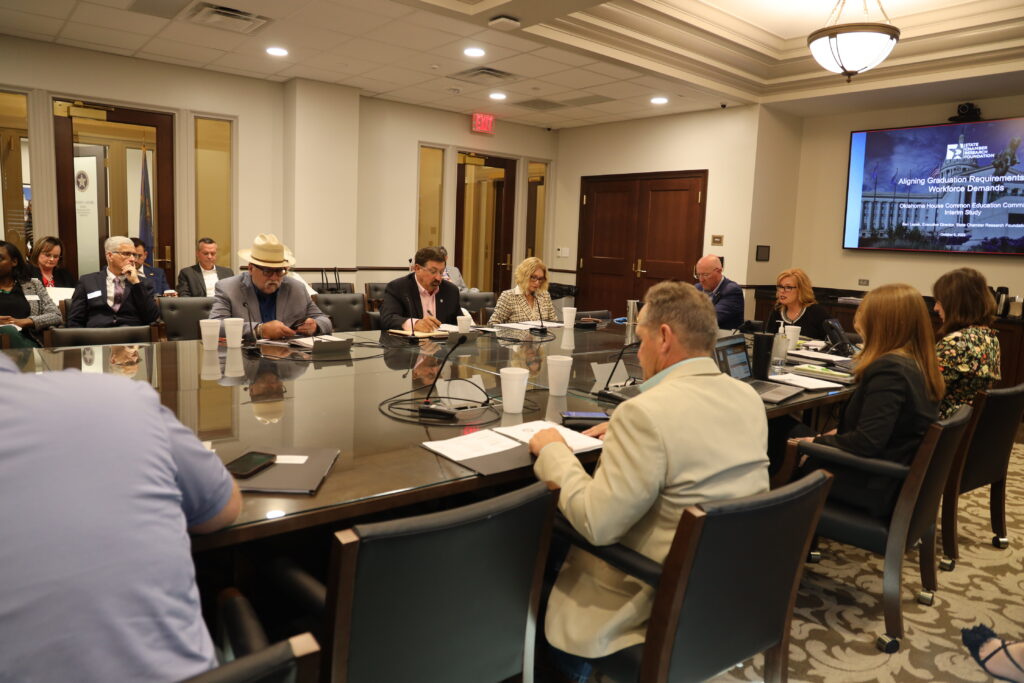
Baker led a special interim study at the State Capitol in October 2023 to investigate potential changes to the state’s graduation requirements to get more students workforce ready and fill the need for more skilled workers in Oklahoma industries.
The interim study was attended by legislators as well as business and education leaders from across the state.
“One thing we all understand and know is that there is a connection between our education system and workforce readiness. We got to make sure what we’re doing is a true plan,” Baker said. “This is a great opportunity for us to come together as leaders and have a discussion about what works and what doesn’t work. We got to keep up with the needs of our students and do what’s best for them. All of us value education, and we must make sure we’re moving toward a path of success for our students.”
Tyler Bridges, superintendent of Clinton Public Schools, spoke during the interim study about the advantages of more flexible graduation requirements.
“We have really good work happening at school districts across the state that are trying to do what we’re talking about today within the constraints of graduation requirements,” Bridges said. “A lot of the pace of the modernization of the career pathways are slowed down by the constraints of the system.”
Haken also spoke during the study, saying that expanded graduation requirements will open new career trajectories for Oklahoma students.
“We have to create opportunity for those students to have extra curricular involvement,” Haken said. “To be engaged in their education and see what they’re good at and go compete at it.”
Haken said that rigid graduation requirements are the biggest obstacle in education.
“We don’t have the flexibility to really individualize what learning needs to look like and how we can help students understand what their career trajectory should look like,” Haken said. “We’ve made it a little too rigid and we have understood that there is equal value for many different careers and that a student should have some say by the time they’re about to become an adult and what that looks like for them.”
HB 3278 ultimately empowers students by better preparing them to enter the workforce after high school, Baker said.
“All of this is geared toward a student’s ability to create a path that they need and not stifle them into one route that they get to make choices, and that’s important,” she said.





